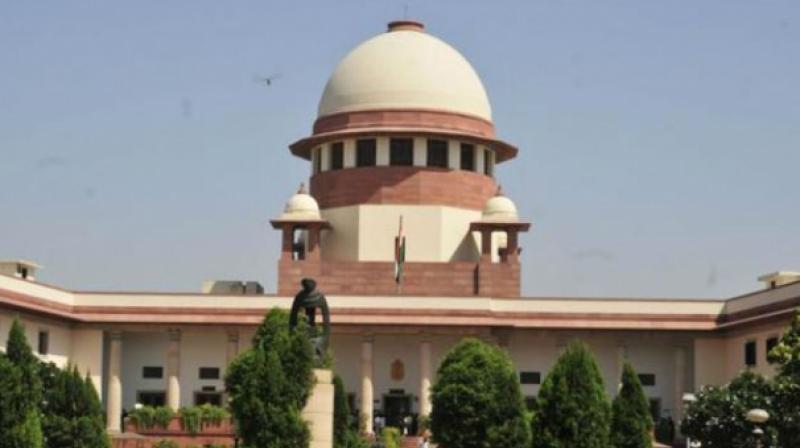Supreme Court rejects Karnataka's plea to recover Jayalalithaa's dues
The state wanted to uphold 100 cr fine imposed against the former CM.

New Delhi: The Supreme Court on Wednesday rejected a Karnataka government petition for a review of its judgement holding that the appeal in the Rs 66 crore disproportionate assets case against former Tamil Nadu CM Jayalalithaa has come to an end after her death on December 5, 2016.
A bench of Justices Pinakai Chandra Ghose and Amitav Roy dismissed the review petition, which sought a direction to declare Jayalalithaa a convict and guilty of corruption and to recover Rs 100 crore fine imposed on her by the trial court.
In a brief order passed in the chambers, the bench said, “Applications for personal hearing of Review Petitions before the Court are rejected. These Review Petitions have been filed against judgement dated 14th February, 2017, whereby the appeals filed by the appellant – State of Karnataka – were allowed setting aside the judgement and order of the High Court and A1 (Jayalalithaa) having expired meanwhile, it was held that the appeals, so far as those related to her stood abated. We have considered the Review Petitions filed by the State of Karnataka on merits. In our opinion, no case for review of our order dated 14th February, 2017 is made out. Consequently, the Review Petitions are dismissed on merits.”
Karnataka argued that though the question of further imprisonment for Jayalalithaa does not arise, sentence to pay Rs100 cr fine is legally sustainable and should be recovered from the estate. This is particularly so where the offence alleged is of illegally acquiring disproportionate assets. Therefore the finding that the appeal has abated is not correct.
Karnataka described the judgement as an “error on the face of the record”. It said, “If a party dies after the conclusion of arguments and judgment is reserved, there is no question of abatement of appeal and that the judgement subsequently pronounced will have the same force and effect as if the same was pronounced before the death took place.”
Karnataka said, “There are no provisions either in the Constitution or in the Supreme Court Rules, 2013 for such abatement of appeal. On the other hand, the Supreme Court Rules, 2013 provide that both in case of civil appeals as well as election petitions there will be no abatement if the death takes place after conclusion of hearing.”
It said, “A criminal appeal involving offences under the Prevention of Corruption Act stand on a slightly different footing where the allegation is of acquisition of disproportionate assets by a public servant. Though the death of Jayalalithaa renders sentence of imprisonment infructuous, the question whether a fine and confiscation of illegally acquired property will survive for consideration.”

